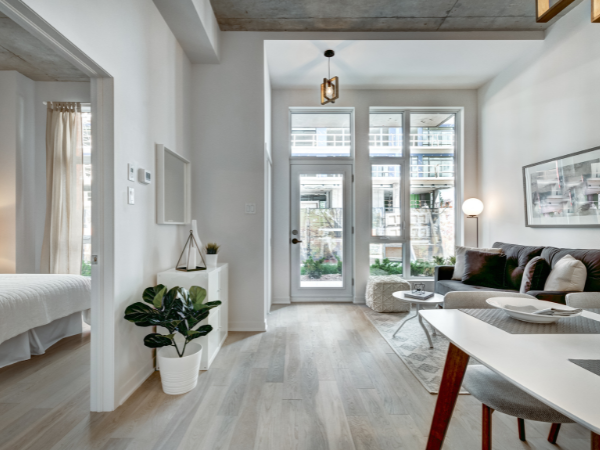
Micro-apartments: A clever investment opportunity or not?
Micro-apartments are one of the new crazes in the global real estate market. Proving once and for all that size isn’t everything, these micro-apartments are often kitted out with top-end appliances and finishings, giving its residents all the benefits of an ultra-urban lifestyle and quick access to places of work, entertainment venues and much more.
Seeff takes a closer look at micro-apartments and what they have to offer real estate investors.
First things first: what is a micro-flat or micro-apartment?
Micro-apartments are typically around 25 to 30 square metres in size, which allows just enough space for a kitchenette, bathroom, sleeping area and sitting space – although the latter two are often combined. Due to their size, micro-apartments are typically more affordable than most inner-city residences, but while this forms part of the basis of their appeal, the trend goes further than that. For a generation dedicated to minimising their carbon footprint and creating less waste, micro-apartments help people to live an eco-friendly way of life. If the purpose of an apartment is to save money and live a convenient lifestyle, then a micro-apartment is all that with an added bonus of concern for the environment.
What is typically on offer in a micro-apartment?
A typical micro-apartment development focuses on luxury, and living small does not always equate to not living well. Most micro-apartment blocks boast elevator access to each floor, with basement parking for residents. Many offer storage rooms on parking garage levels, giving micro-home dwellers a little leeway for keeping things that don’t quite fit. Another perk is excellent security features, which typically include intercoms, CCTV and access control. Communal features such as swimming pools and gyms are common. Luxurious micro-apartment buildings may offer a wider array of features, including dedicated pet parks, yoga studios, business centres and office spaces.
Micro-apartments often provide an affordable gateway into a sought-after way of life. Many luxury apartment developments include one and two-bedroom apartments as well as studios and micro-units – the latter being offered at a far more affordable price point.
Frequently asked questions about micro-apartments
Q: What’s it like living in a micro-apartment?
A: One of the many advantages of micro-apartment living for your tenant is that he or she won’t have to share with roommates. Over and above this, they will have access to an array of facilities that they wouldn’t have if they lived elsewhere. In a micro-apartment building, they might have a doorman, gym and swimming pool, for example.
Q: What are the benefits of living in a small apartment?
A: There are various benefits to living in a micro-apartment and your property practitioner will be able to point these out to prospective tenants. For starters, living in a small environment means less to clean and maintain. It also compels dwellers to be realistic about their needs and to be selective with furniture.
Q: How do you know if a micro-apartment is a good investment?
A: As with any real estate investment, the first thing to consider is the neighbourhood. You’ll also need to look at the municipal rates that you will be charged as well as sectional title levies. Look at the number of listings and vacancies in a particular building or area as well as the average rentals being charged. If it’s in a good area and the block has sound financials, then an apartment – whether or not it’s micro – is a good investment property.

Micro-apartments may be new to the real estate landscape, but Seeff is not. With decades of experience in helping property investors grow their wealth through real estate, we’ve got our finger on the pulse of every real estate trend. Contact our team for more information about micro-apartments or any other type of real estate investment you may be interested in.







